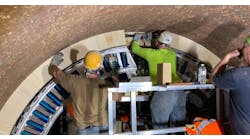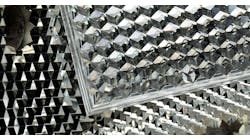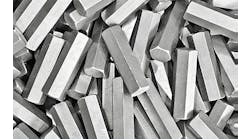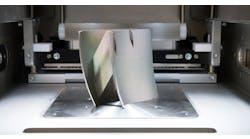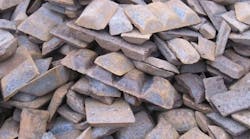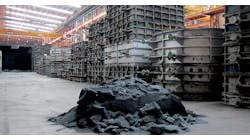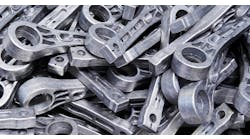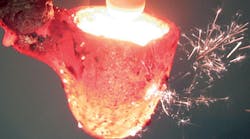SinterCast AB reported that its licensees’ series production of compacted-graphite iron (CGI) stabilized during the third quarter (July-September) of 2016, marking the seventh-straight quarter with output “at or above the 2 million engine equivalent threshold” (i.e., 110,231 short tons), though it added that the quarterly total was 5-10% lower than during Q1 or Q2.
For the quarter, SinterCast reported revenues of SEK 23.8 million ($2.6 million) compared to SEK 20.6 million ($2.24 million) for Q3 2015. Through three quarters of 2016, the group’s revenues are reported SEK 58.2 million ($6.32 million), compared with SEK 55.2 million ($6.0 million) for the January-September 2015 period.
The decrease in Q3 CGI production is attributed to annual scheduled production breaks during July and August. “Despite the reduction in the third quarter, the year-to-date volume in 2016 represents the highest all-time production for the January-to-September period,” SinterCast noted in its statement.
Stockholm-based SinterCast is the world’s largest supplier of the control technology used by foundries to produce CGI — a lightweight alternative to gray iron and aluminum used mainly for automotive diesel engines and cylinder blocks, and some gasoline engine blocks. Other applications include industrial power engines parts, ranging from 2 kg to 9 metric tons.
In addition to licensing the technology, SinterCast supplies CGI producers with control system hardware and molten-metal sampling cups. Recently, it introduced a new RFID-based tracking technology for molten-metal ladles, known as LadleTracker.
“The overall outlook for series production remains positive, with the pickup sector in the United States continuing to perform well as demand remains strong for full size vehicles,” SinterCast president and CEO Dr. Steve Dawson commented. He added that series production in the commercial vehicle sector is another positive contributor, and he indicated there has been progress in the “ramp-up of heavy duty engine programs for European OEMs,” and in product development and pre-production for medium-duty and heavy-duty engine programs at China’s ASIMCO International Casting Co., Ltd. (Shanxi), an independent automotive parts manufacturer.
A SinterCast System 3000 Plus system ordered by Teksid do Brasil, a foundry in Belo Horizonte, Brazil, also contributed to Q3 revenue. That installation will be commissioned during the first quarter of 2017.
Dawson added that installation discussions are in progress with “several other customers,” which includes expanding current installations to increase capacity; functionality upgrades to accommodate customer requests for additional process control features; and, new installations.
SinterCast indicated that it is investigating the development of other technologies, “within and beyond the scope of thermal analysis, … to improve quality and production efficiency in the cast iron foundry industry.”

